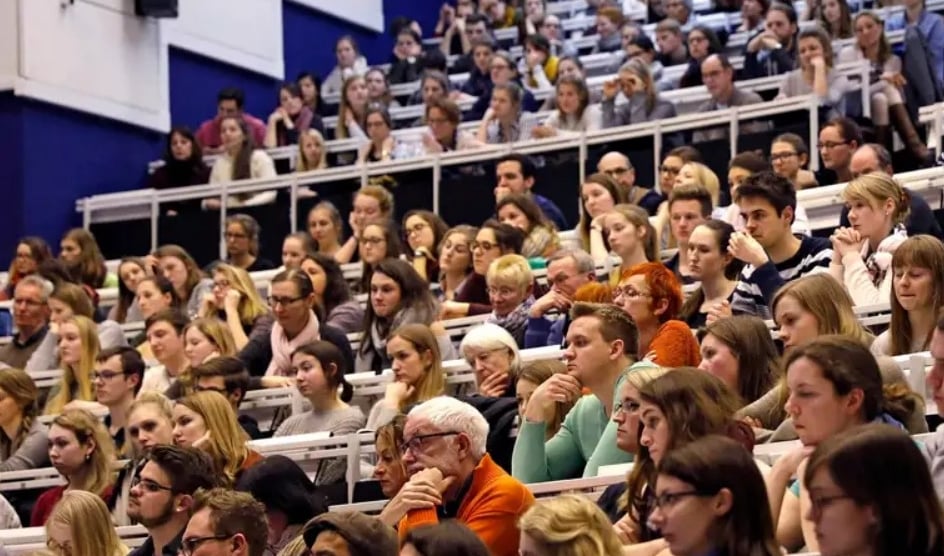According to the German Economic Institute (IW), international students not only contribute billions of euros to the national budget but also help economic growth. Specifically, the 79,000 foreign students starting their studies in Germany in 2022 are expected to contribute nearly 15.5 billion euros ($16.8 billion) in taxes and social insurance over their lifetime, far exceeding the benefits they receive.
The President of the German Academic Exchange Service (DAAD), Joybrato Mukherjee, stressed that these results demonstrate that "international students are not only academically valuable but also bring economic value to Germany".
Germany also has a remarkable retention rate for international students. According to a 2022 OECD study, around 45% of students who came to Germany to study in 2010 were still there 10 years later. The IW Institute points out that if 40% of international students stayed in Germany for at least three years after graduation, the taxes and insurance they paid would be enough to cover the cost of their education.

International students are a major source of income for the German budget. Photo: GI
There are many reasons why international students choose Germany to study, including the affordable cost. In Germany, most universities are tuition-free, even for international students. This free education policy was originally established for reasons of social justice, but has now become a way to attract highly skilled workers.
At the school of Younis Ebaid, an Egyptian who moved to Germany to study for a master's degree, each student pays just 60 euros per semester to support general activities. "It's cheaper than my university in Egypt," he added.
Ebaid’s experience echoes findings from the German Economic Institute (IW). Germany has been working for more than a decade to make it easier for foreign students to stay and work after graduation. While other countries view international students as a source of income, Germany sees them as a potential source of human resources.
The German Economic Institute proposes “targeted immigration incentives” to help international students enter the labor market. The IW stresses that educating international students not only brings economic benefits but also promotes international cooperation – even when they return home after completing their studies.
Ha Trang (according to IW, DAAD, DW)
Source: https://www.congluan.vn/sinh-vien-quoc-te-mang-den-hang-ty-euro-cho-nuoc-duc-post340034.html





![[Photo] Closing of the 11th Conference of the 13th Central Committee of the Communist Party of Vietnam](https://vstatic.vietnam.vn/vietnam/resource/IMAGE/2025/4/12/114b57fe6e9b4814a5ddfacf6dfe5b7f)

![[Photo] Overcoming all difficulties, speeding up construction progress of Hoa Binh Hydropower Plant Expansion Project](https://vstatic.vietnam.vn/vietnam/resource/IMAGE/2025/4/12/bff04b551e98484c84d74c8faa3526e0)















































































Comment (0)